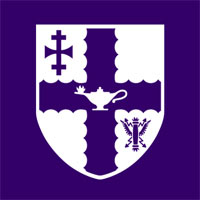fees waived
Bioengineering, MEng (Hons), with industry placement
Loughborough University, United Kingdom
Subject ranking
UK / CUG 5th
UK / CUG 5th
UK / The Times 6th
Costs
food & rentS$16.6K / year
Entry requirements
Scholarships
9 available
More than 50 available
Unlimited quantity
Limited quantity
Limited quantity
Information
Code
Code
Intakes
Website (External)
Programmes
Information
Duration
2029
Bioengineering is the application of engineering practices and principles to analyse and design new processes, tools and techniques to bridge gaps across biological and healthcare challenges. Fundamental engineering principles are used in innovation and design of new products and processes. It plays an integral role in global issues where the challenge or solution is biological in origin.Our Bioengineering degree draws from our expertise across several academic departments and will give you a thorough grounding in engineering systems and applications relevant to bioengineering, a sound understanding of human anatomy, physiology and biological functions and the ability to apply your knowledge and skills to bioengineering problems.The field is rapidly developing and bioengineers work in a wide variety of sectors globally, developing products and creating technology to help people achieve a better quality of life and break barriers in medical and sporting achievements. Examples include prosthetics and biomaterial implants, software engineering for advanced and 3D medical imaging, image-guided and robot assisted surgery, regenerative medicine against incurable diseases, tissue engineering such as bioengineered skin for wounds, 3D bioprinting, medical device development and new assistive technologies (wearable technology, mobile and e-health).At Loughborough, our course will take you from the fundamental science and engineering to the cutting-edge of the subject. During your time with us, you will have access to our state-of-the-art experimental labs to complement your lectures. In their third year, students will complete a research project on a specific topic of interest supervised by a member of academic staff.What's the difference between MEng and BEng?The first two years of the MEng and BEng share the same content to ensure a thorough grounding in engineering and biological concepts, with a good mix of theory, application and practical content from day one. The MEng differs from the BEng course in the third and fourth years, and MEng students are required to study a wider range of technical subjects with additional depth. MEng students also undertake an advanced team research project.
A local representative of Loughborough University in Singapore is available online to assist you with enquiries about this course.

